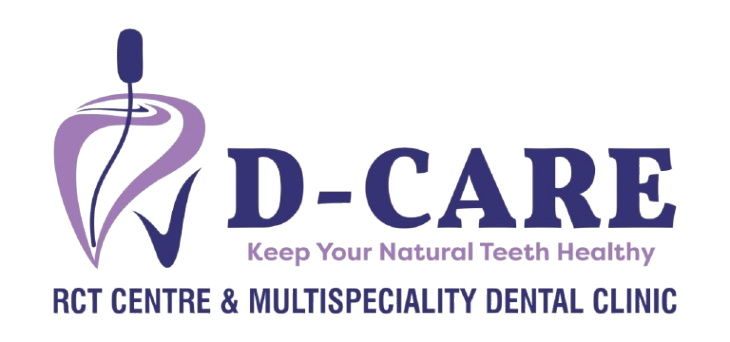by Dcare | Jan 29, 2024 | Dentistry

For many, the thought of visiting the dentist triggers feelings of anxiety, fear, or outright dread. This fear, often referred to as dental phobia, is surprisingly common and can significantly impact oral health if left unaddressed. But what causes people to fear the dentist? Let us dive into the psychology behind dental phobia, its effects, and how to overcome it.
What Is Dental Phobia?
Dental phobia is an intense fear of visiting the dentist that goes beyond mild discomfort or nervousness. People with dental phobia may delay or avoid dental appointments, even for essential treatments, leading to long-term oral health issues.
Why Are People Afraid of the Dentist?
- Fear of Pain
- The Root Cause: Many people associate dental procedures with pain, often stemming from past experiences or exaggerated stories.
Reality: Thanks to modern dentistry, most treatments are now virtually pain-free with the use of advanced techniques and anaesthetics.
- Negative Past Experiences
- A single bad experience, such as a painful procedure or poor communication from a dentist, can leave a lasting impression. A bad painful experience or a forceful treatment done during the childhood is many a times the main root cause behind dental phobia.
- This creates a cycle of avoidance, where fear intensifies with each skipped appointment.
Reality: One single experience cannot decide your future experiences just like having an accident once does not stop you from driving again.
- Loss of Control and Vulnerability
- Sitting in the dental chair can make patients feel exposed and powerless.
- The inability to see what is happening or predict the next step can heighten anxiety.
Reality: Your dentist can now actually show you most of the procedure today with the latest technology and the treatment will not be unknown to you thus avoiding the fear.
- Fear of Needles or Drills
- Needle Phobia: For some, the thought of injections is more terrifying than the procedure itself.
Reality: With topical anaesthesia, even the needle pricks will not be felt
- Sound of the Drill: The high-pitched noise of dental drills can trigger fear or discomfort, even in patients without prior trauma.
Reality: Calm soothing music will help you distract from such sounds.
- Embarrassment About Oral Health
- Patients may feel ashamed of the state of their teeth or gums, fearing judgment from the dentist.
- This embarrassment can deter them from seeking necessary care, worsening oral health over time.
Reality: The more you wait, worse your oral health becomes!
- General Anxiety or Phobia
- People with generalized anxiety disorders or specific phobias are more likely to experience dental fear.
- The dental environment, with its bright lights, clinical smells, and instruments, can exacerbate anxiety.
Reality: Soothing smell and soft calm music can help overcome this.
How Dental Phobia Affects Oral Health
Avoiding the dentist can have serious consequences, including:
- Cavities and Gum Disease: Untreated dental issues can worsen, leading to tooth decay, gum disease, or even tooth loss.
- Increased Treatment Complexity: Skipping preventive care often results in the need for more invasive and expensive treatments later.
- Overall, Health Impact: Poor oral health has been linked to systemic issues like heart disease, diabetes, and infections.
- Cycle of Fear: The longer someone avoids the dentist, the more fear builds, making it harder to return.
Overcoming Dental Phobia
- Communicate With Your Dentist
- Share your fears openly with your dentist. A good dentist will listen, explain procedures, and adjust their approach to help you feel more comfortable.
- Choose the Right Dentist
- Look for dentists who specialize in treating anxious patients or offer sedation dentistry.
- Reading reviews or asking for recommendations can also help you find a compassionate professional.
- Start With Small Steps
- Begin with a consultation or a basic cleaning to build trust with your dentist before undergoing more complex procedures.
- Use Relaxation Techniques
- Practice deep breathing, meditation, or progressive muscle relaxation before and during your appointment to calm your nerves.
- Consider Sedation Dentistry
- Options like nitrous oxide (laughing gas), oral sedatives, or IV sedation can help ease anxiety during dental treatments.
- Bring a Support Person
- Having a trusted friend or family member accompany you can provide comfort and reassurance.
- Distract Yourself
- Many dental offices offer amenities like headphones, TV, or calming music to help patients focus on something other than the procedure.
Thus, dental phobia is a real and valid concern, but it does not have to prevent you from maintaining good oral health. By understanding the root causes of your fear and seeking support from a compassionate dentist, you can break the cycle of anxiety and take charge of your smile.
Remember, modern dentistry is focused on patient comfort and care. Facing your fear step by step can lead to healthier teeth, improved confidence, and even a more positive outlook on dental visits. Your smile is worth it!
Until the next time
-D-Care
D-CARE
